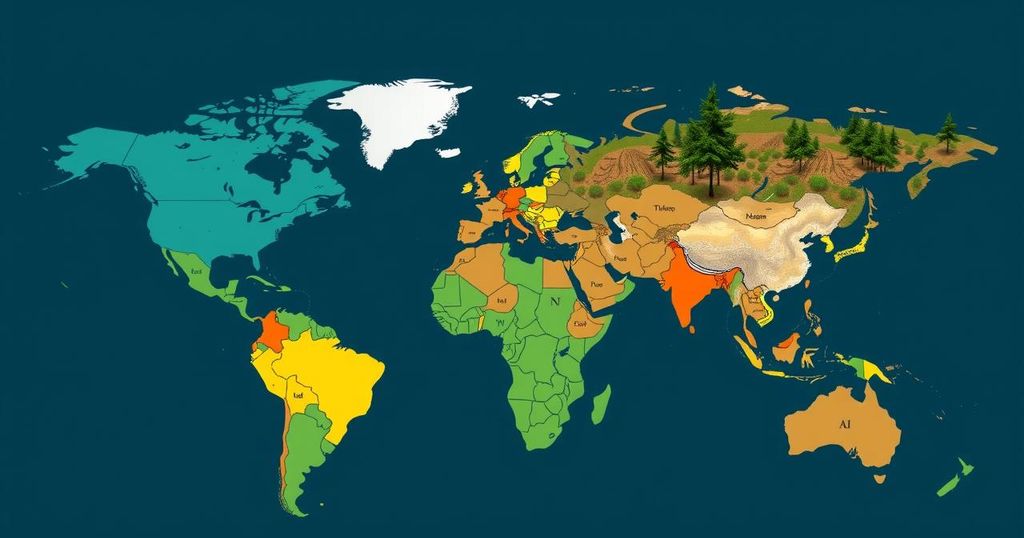Financial Assistance Initiatives Address Climate Change Damages for Low-Income Nations

Richer countries are beginning to compensate poorer nations for damages caused by climate change, exemplified by Malawi’s Cyclone Freddy recovery efforts. With pledged funds around $720 million, experts assert that this is insufficient given the escalating challenges. Initiatives are underway to refine the allocation of these funds amid calls for broader support to enhance resilience against future disasters.
In the aftermath of Cyclone Freddy, which devastated Southern Malawi, local resident Christopher Bingala received a critical financial assistance payment amounting to approximately $750. This payment, part of emerging “loss and damage” compensation initiatives, is intended to support communities disproportionately affected by climate change impacts despite contributing minimally to global emissions. Wealthy nations, acknowledging their historical responsibility, have pledged about $720 million to alleviate some of these damages, yet experts assert this amount will fall short as climate-related disasters escalate.
The destruction caused by Cyclone Freddy was not isolated. Over 650,000 individuals were displaced in Malawi as the cyclone deluged the area with six months’ worth of rain in just six days. Like many others, Bingala found himself in a dire situation but was able to utilize his compensation to rebuild his home in a less flood-prone area. This pilot program, initiated by Scotland, aims to address immediate needs of those affected by climate-related events, emphasizing the absence of safety nets such as insurance for impoverished families in developing nations.
Furthermore, as the COP29 climate summit progresses in Baku, Azerbaijan, discussions continue regarding the establishment of a comprehensive fund dedicated to loss and damage compensation. The funding landscape remains complex, with calls for a broader definition that includes funding for preventive measures. The urgency of this initiative is underscored by the predictions of escalating financial needs in response to increasingly severe climatic events, which may reach $250 billion annually by 2030. Prime Minister Philip Davis of the Bahamas highlights the imperative for affluent nations to engage in this dialogue, recognizing that their fates are interconnected. The pressing challenge remains on how to effectively channel these funds to those in most need to facilitate recovery and resilience against future disasters.
Climate change has become a critical global issue, disproportionately impacting low-income nations while wealthier countries have historically contributed significantly to greenhouse gas emissions. With the rising frequency of severe weather events, affected communities are left to grapple with the financial and physical losses inflicted by these disasters. As awareness of this disparity grows, initiatives for “loss and damage” compensation are emerging, representing a pivotal response from wealthier nations towards addressing the challenges faced by developing countries. COP29 serves as an important platform for negotiations on funding and assistance that can mitigate further climate-induced damages.
In conclusion, the initiation of “loss and damage” funding represents an essential step towards rectifying the inequities caused by climate change. While the pledges made by wealthier nations amount to significant sums, their effectiveness will hinge on the operationalization of these funds and their distribution to affected populations. Moving forward, it is crucial for richer nations to engage proactively in supporting developing countries not just for recovery, but also for future resilience strategies against an inevitable increase in climate-related challenges.
Original Source: www.delawarepublic.org






